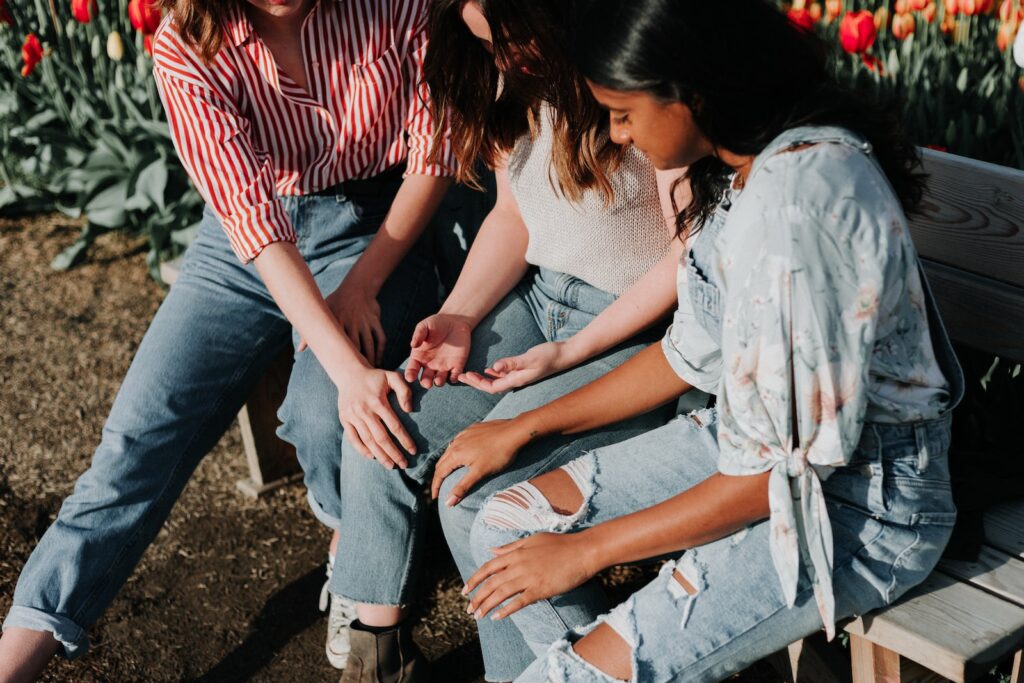
Do you feel that someone you care about may be in an abusive relationship? Understand the signs and ways that you can help.
What are signs that someone is in an abusive relationship?
In abusive relationships, one person tries to gain power and control over their partner. They use guilt, shame, intimidation, and fear to make their partner act and do what they want. An abuser will threaten to hurt their partner, hurt people, or things that matter to them to maintain control over them.
The person you care about is being abused or is in an abusive relationship if they:
- Are frequently criticized and put down by their partner
- Seem to make their partner jealous easily and frequently
- Have limited access to time or communication with friends or family
- Have limited access to money or transportation
- Are constantly put down and called names
- Are told what to wear
- Defer all decisions to their partner
- Have no control of the money in the relationship
- Are prevented from working or attending school
- Are afraid of angering their partner
- Have little or no privacy online or on the phone
- Are pressured to have sex or do things sexually they are uncomfortable with
- Are pressured to use drugs or alcohol
- Are often criticized about their parenting and their children are threatened
- Receive threatening text and phone messages from their partner
- Have had their belongings or property destroyed or taken away by their partner
- Are worried about the safety of their pet
- Have been pushed, punched, slapped, bitten, pinched, kicked, or had their hair pulled
- Have had their own life threatened or their partner has threatened suicide based on their actions
- Deny the abuse or even take the blame themselves for the abuse
How can I help someone who’s in an abusive relationship?
Listen. Domestic violence, sexual assault, and human trafficking and exploitation are difficult subjects for everyone to discuss. The abuser may be your relative or friend which can make it even more uncomfortable sharing information. Spend more time listening than talking and withhold judgment and advice.
Respect their choices. Though you may wonder why people stay with an abusive person, trust that they know what is safe for them at this moment. Abusive relationships can be emotionally and physically dangerous. Many victims are assaulted or killed when trying to escape their relationships.
Offer resources and support. Let them know you’ll be there when they need you. They may not be ready to accept help now, but keep the door open. Offer to watch their kids. Be there to sit with them when they’re ready to call for help.
Help them stay safe. If they aren’t ready to leave right now, help develop a safety plan if there is an incident. You could offer to store a copy of important documents, precious items, an extra set of car keys, and emergency money at your home if the need for a quick escape arises.
Offer to help get medical attention. Offer to drive to the doctor if anyone is physically hurt and might need accompaniment.
Take care of yourself. Get support for yourself. Be mindful of privacy and don’t discuss their situation with mutual friends or family. Seek help from a domestic violence professional or another trusted individual that does not know them personally such as a therapist or spiritual leader. If you are not sure where to turn, call the Minnesota Day One Crisis Hotline, 1.866.223.1111, text 612-399-9995, or click the CHAT NOW button on this site and a trained advocate will assist you.
How can I connect someone with Day One?
Let the person you care about they can call the Minnesota Day One Crisis Line 1-866-223-1111 to speak with an advocate (interpreters are available), text 612-399-9995, or click the CHAT NOW button on this site to connect with a Day One advocate. A Day One advocate is available 24 hours a day, 7 days a week to assist you.
Tell them they can reach out any time, day or night, whether they want to find a safe place to go or just get support. There’s no charge and no judgment. Just someone to listen and help.
Can I support Day One and other survivors?
Day One is a Minnesota statewide program of Cornerstone Advocacy Service, a victim and survivor-centered advocacy and service provider committed to ending domestic violence, sexual assault, and human trafficking. If you’d like to make an impact, please consider making a donation to Cornerstone. There are many opportunities to support us in making sure that no call for help goes unanswered. Checking out our volunteer opportunities, providing in-kind donations including gift cards, and making financial contributions are some ways to start.
More Resources
- “Safety Planning for Family and Friends” By Heather, Advocate at The Hotline.
- Family and Friends Guide to Domestic Violence: How to Talk, Listen and Take Action When Someone You Care About is Being Abused by Elaine Weiss
